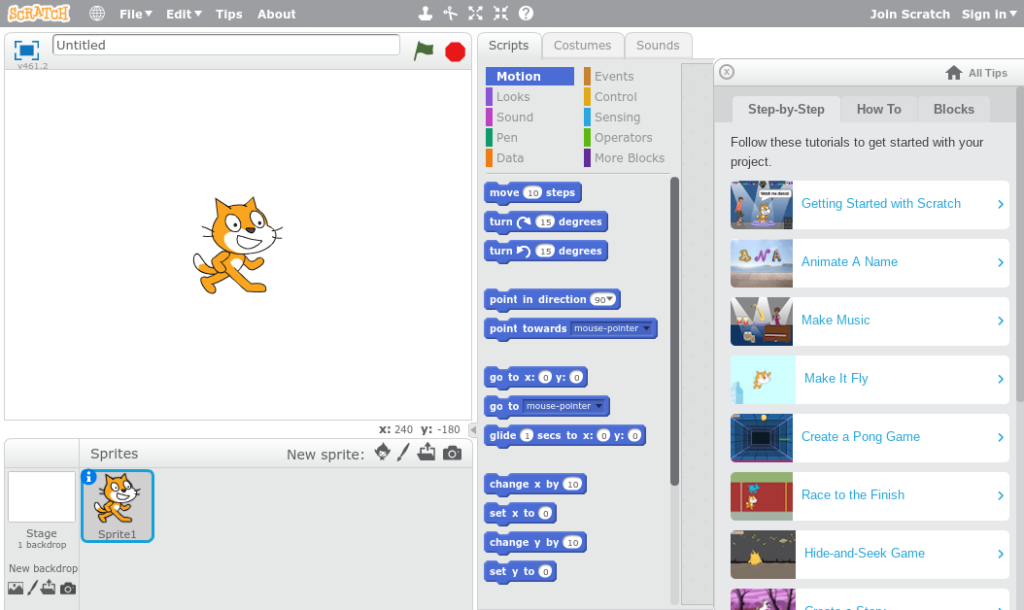As the world becomes more reliant on computers, the demand for budding programmers only continues to grow. Programming is the most important job skill of the future. Today, we need to raise the next generations of savvy developers who can take on the challenges of tomorrow. Programming is an in-demand and lucrative as it can get when it comes to careers, and that’s why it’s essential to develop these skills early on in children.
Whether you’re hoping your child grows up to be the next Bill Gates or to pave his or her own path, you’ll need to cultivate this excitement for computers. There’s no such thing as starting too early, and there are a number of programming courses and games designed with kids in mind. Coding is all about learning the language of computers. Like any language, the younger kids start learning it, the easier it is to master.
You understand just why it’s so important to start your kids early when it comes to computer skills. Yet, you still don’t know the best ways to get them to pick up programming quickly. Like any skill, you need to make it fun for kids. They probably don’t care about writing data processing algorithms, but they do like playing games and designing things.
Kids don’t now that coding is “hard.” They just know that it’s fun to mess around on the computer, and that’s all there is to it. Here are 3 critical tips for getting kids to learn to program faster.
1. Use a Simple Interface.
Python is a programming tool that might not be as easy to use for younger kids. If you’re starting your kids really early with coding (under the age of 13), it’s best to stick with a simple interface that’s easy to understand. The best option is MIT’s Scratch. This is a free programming tool and it can run in any modern web browser.

The benefit of Scratch is its simple graphical interface. Kids can use drag-and-drop code blocks which snap together. If the code doesn’t work together, the blocks won’t fit. This is especially useful for kids who haven’t yet developed their typing skills.
Scratch is great when kids are just getting started. It’s an easy way to have fun with the basics of development and clean code. However, they will eventually run into a wall. Kids who want to make more sophisticated systems or type by hand will need something like Python. While more complex, Python is the ideal first programming language since it’s very simple.
2. Use real code.
It’s tempting to talk concepts at kids when they’re learning the basics. This makes sense since programming is a seemingly intellectual activity. However, much of programming is a hands-on learning experience. Kids will learn much more by seeing the source code for themselves than by being talked at.
Blank editors are intimidating. Looking into the source code of existing programs makes this process much easier, and it gives real guidance. Start with modifications. Use existing code and make modifications, even if all the kid does is break it. This is how you learn. Making small changes to existing code might not seem like much, but it’s real-life learning in action.
3. Let kids take the driver’s seat.
It’s tempting to help your kids along by typing in a few lines of code here and there. Don’t do this, no matter how much you want to. Helping with your knowledge is excellent. Taking over is not. Coding is something that needs to be learned with hands-on practice. Let your kids do the main work, and don’t just jump in if they encounter a problem.
One of the most important things to learn when getting started in programming is that challenges are a reality of the territory. Kids will run into problems. Learning to overcome these problems will serve them well. Have your kids type the code themselves, building their skills from the ground up.
Be patient. When learning new things, you’ll need to be willing to let the kids figure it out for themselves before stepping in. Beyond this, challenge them to push their skills further. In this day and age, the basics of programming won’t get you far. Things like cybersecurity and application monitoring are increasingly important. Learning these skills in addition to the basics will help your kids gain an edge in the development world. Click here for more about application monitoring.
Develop Coding Skills
Kids are natural learners. Their brains act as sponges ready to absorb new information. Make the most of this time in your kids’ lives by cultivating a love of programming and development. You’ll be surprised by how quickly they learn when you let them take control.
These tips above make it possible for kids to learn programming quickly. Once they master the basics, there are no limits to what they’ll create. From games to mobile applications, kids really are taking technology by storm.